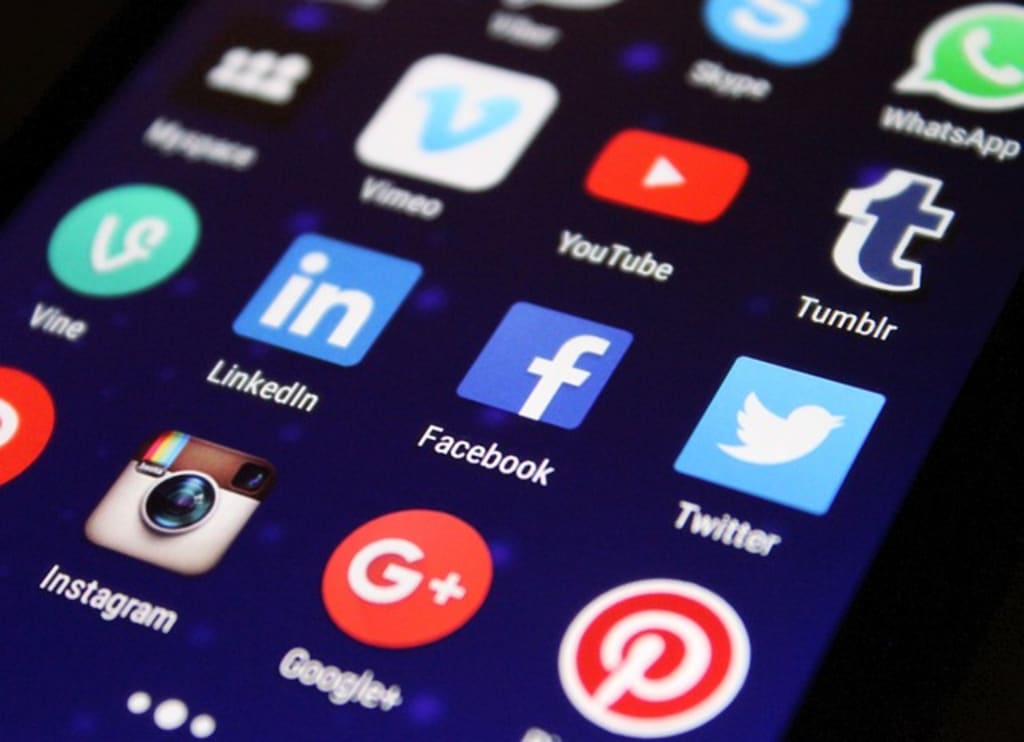Social Media is Destroying Your Life
Addiction in Gen Z

I mean, technology is great; you know, it's a lot of fun and very helpful; it makes a lot of things easy, but like anything in the world, there can be too much of a good thing, and I think one of the things we don't talk about is what the balance of technology is in our lives, and I would argue that for many of us, it's out of balance.
Dopamine is the same chemical that is released in alcohol because we already know that it is released anytime we receive a buzz, flash, or beat from our phone or email. In other words, it can become addictive if not used in moderation. Just as a little alcohol is fine, too much alcohol is not so good.
Technology is amazing, but too much of it can be highly damaging and damage our relationships just like all addictions do, so the one thing we're not thinking about is what the correct balance is. While gambling is enjoyable, too much gambling is bad. It's an issue if you get up in the morning and check your phone before greeting your spouse, isn't it? Phantom beeps are a problem that results from something, right? It's an issue if you can't go a day without checking your phone. With kids and millennials—some of whom aren't kids anymore—this is where it gets very dangerous.
When we're very young, the only thing we need is the approval of our parents. However, as we enter adolescence, we now need the approval of our peers, which is both frustrating for our parents and crucial for us because it enables us to integrate outside of our immediate families into the larger group. This is a stressful time, and we're supposed to learn to rely on our friends during this period of anxiety.
When they discover that the numbing effects of dopamine truly help them cope with the stress of adolescence, this relationship, sadly, becomes hardwired, and for the rest of their lives, whenever they confront any type of financial, professional, or social stress, they turn to the bottle. We currently have age limitations on alcohol, tobacco, and gambling because we are aware that a developing mind is not yet capable of withstanding the effects of these addictive substances; therefore, we put an age restriction in place.We don't have an age limit or age restriction on social media or cell phones, so ostensibly what we've done is opened the liquor cabinet and told our teenagers, "Hey, I know this whole being an adolescent thing is really stressful, so here's the vodka. Take as much as you need." As a result, we have an entire generation that is growing up addicted, and, like all addicts, they haven't learned the skill set to cope with stress.
We've all had the experience where someone pulls out their phone while you're with them walking down the street, in a meeting, out for dinner, whatever, and you feel like an idiot, or when you're talking to them and they're going, "What am I? What's the point of this?" Now take an entire generation that has no memory of a time before the device; we at least need to be aware of this.Thus, an entire generation is growing up with addiction and a greater sense of loneliness and isolation. As a result, we are already witnessing the effects: this generation has higher rates of suicide, accidental overdose deaths, and mass homicides, which are largely committed by members of this generation.
Over 70 school shootings were committed by children born after 1984, who also committed the majority of mass murders. Parents are largely to blame for this because some schools want to restrict phones in schools, and it's the parents who demand that they do so. Universities are now dealing with increasing numbers of students requesting leaves of absence due to depression. We are already seeing it; we are seeing the effects of loneliness and isolation, and yet we are not reacting or doing anything about it.
We included the issue. We didn't find a solution, so that's a major issue. Add to that the fact that this generation is addicted to social media and lacks the ability to ask for help, plus the fact that they're adept at using filters on Facebook and Instagram to demonstrate their strength and intelligence. If you look at the Instagrams of kids who commit suicide, you wouldn't know they were depressed because they appear happy.
We have an entire generation that is growing up with lower self-confidence than previous generations, so you have lower self-confidence than previous generations combined with an inability to ask for help when you need it, so you turn to social media or a device and keep checking. You count your likes. You count your likes. You follow my account. You count your followers. If someone unfriends you, you count. Oh my God, it's trauma, right? They just ghost each other, cut each other off, and stop responding to texts and phone calls because they lack the communication skills to say, "Hey, it's not working out; it's not me, it's you."
Consequently, it's damaging to them personally, but it will ultimately harm businesses because an increasing number of millennials are entering the workforce.
About the Creator
Enjoyed the story? Support the Creator.
Subscribe for free to receive all their stories in your feed. You could also pledge your support or give them a one-off tip, letting them know you appreciate their work.





Comments
There are no comments for this story
Be the first to respond and start the conversation.